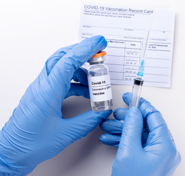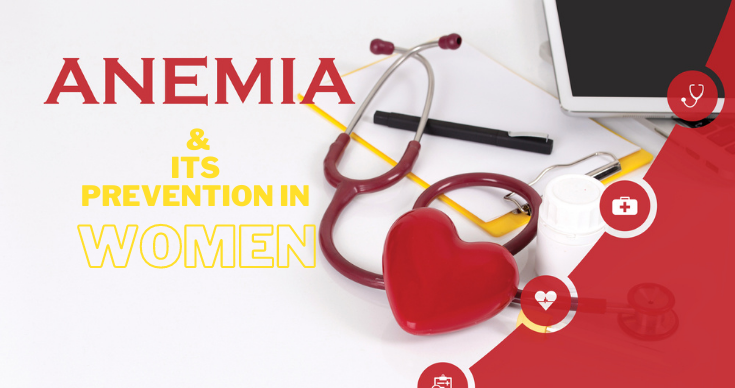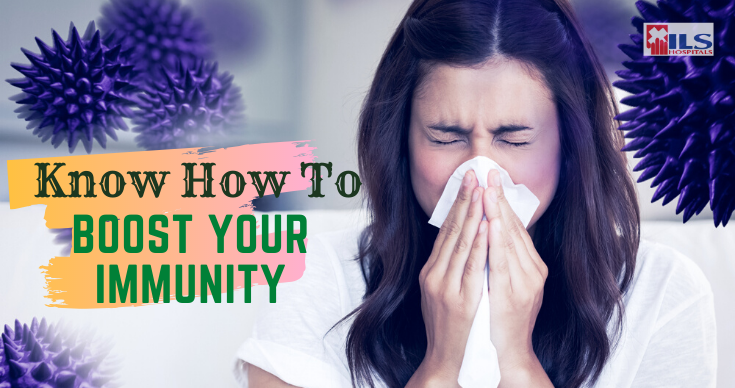Learn About the Covid Vaccination Process in Kolkata
The people of the country have been suffering from Covid 19 pandemic for over a year. Finally, there is some good news to overcome this Pandemic situation. The vaccination process for the Covid 19 pandemics has started all over the country.
Kolkata was one of the severely hit cities in India. People have faced a difficult situation in this pandemic. Finally, we can see a ray of hope for the people of Kolkata as the vaccination has started all over the country. The public will get the vaccine in phases.
The Vaccination Process
Phase 1
In the first phase, vaccination will be for frontline workers and other health workers. By the end of the phase 1 vaccination period, the allocation was more than seven lakh frontline workers.
Phase 2
It has focused on the police, armed forces, and disaster management volunteers.
Phase 3
Individuals above 50 years and under 50 with commodities will be eligible for the vaccine.
Know the Vaccines
Two covid vaccines Covishield and, Covaxin got the permit from the governing health authorities. These two vaccines have undergone rigorous trials. Plus, with numerous phases of trials and tests for safety and immunogenicity. The government of Kolkata has started giving the vaccine to the people. have listed some of the government and private hospitals where the vaccination will be available.
In Kolkata, 15 government hospitals and ten private hospitals will provide the vaccination service. According to the reports, Covishield and Covaxin have a ceiling price set for Rs 250 per dose at private facilities. The Union Health Minister has stated that he will make vaccination available free of charge at government hospitals.
What to Do To Get The Vaccine?
After vaccinating frontline workers and the armed forces, as well as the other volunteers, the government has started giving the vaccine to senior citizens above 50 years of age. To get a vaccine, everyone needs to register in the CoWIN app for covid vaccine registration.
The CoWIN app is not available on the play store. You can download it from the official app site or via the AaroygaSetu app, which has the CoWIN app linked with it. Registration has started from March 1 onwards. You can register from 9 am to 3 pm every day.
Steps for Registration For Vaccination
- Open AaroygaSetu app or CoWIN app.
- Enter your mobile number and then enter the OTP received.
- In the AaroygaSetu app, click on the CoWIN app. It will redirect you to the page, then tap on the vaccination tab. Now a registration page will pop up, and you have to fill in all the details.
- People above 45 have to carry a medical certificate during the time of appointment.
- Then, you need to book an appointment and provide the necessary details. You will get a list of vaccination centres near your location, and you can choose one from your convenience.
- If you want to reschedule your appointment date, you can do that on the app.
Conclusion
Health workers in Kolkata are working very hard on their process of vaccinating people. Let us hope that everyone in the country gets their vaccination done as soon as possible. Kolkata government has also promised to make vaccination free of charge. Let’s hope for the best. For further information on Covid Vaccine and to get vaccinated, you can visit https://www.ilshospitals.com/.
ILS Speaks – Healthy Hair, Healthy You
Hair has been called crowning glory as it is symbolic to the person’s health, beauty, and overall personality. A luscious thick mane is always considered healthy and so to achieve that people use a lot of products and provide a lot of TLC to the hair.
Have you ever wondered what your hair is trying to tell you? Just like your nails, your hair has a lot to say about the health of your body. The condition of your hair can hint at serious diseases, like thyroid, anaemia, etc. as well.
In today’s blog, ILS Hospitals, one of the best hospitals in Kolkata and Agartala, will tell you what your hair is trying to tell you about your overall health. So, without any further ado, let’s proceed further.
Dull and lifeless hair
Dull and lifeless hair can happen due to a variety of reasons. You might make your hair dull and lifeless when you undergo chemical treatment, like hair colouring, rebonding, and other heat treatment or when you use harsh chemical-based products at home. From the medical point of view, dull and lifeless hair strictly indicates poor nutrition.
Solution: Eat lots of fruits, vegetables, and meat. Drink plenty of water and avoid harsh chemicals on your hair.
Grey or white hair
Grey or white hair is normal after you turn 35 years. But if you have white hair in your twenties then it is a matter of concern. The hair becomes white due to insufficient melanin, a pigment that gives hair its natural colour. This can happen due to vitamin B deficiency and stress.
Solution: Stay away from stress and eat vitamin B rich foods, such as eggs, fish, chicken, mutton, oysters, milk, whole grains, almonds, broccoli, spinach, bananas, avocados, bananas, and so on.
Thinning hair
Hair thinning or receding hairline occurs due to nutritional deficiencies or thyroid. Hyperthyroidism and hypothyroidism can cause hair loss in men and women. If you wish to know more about thyroid, read this blog: Your Complete Guide On Thyroid
Solution: Consult your medical professional, preferably visit ILS Hospital and get thyroid function tests.
Excessive hair fall
Losing 50-100 strands of hair a day is completely normal but if the hair strands exceed this normal range then it can indicate towards iron deficiency or anaemia.
Solution: Eat foods rich in iron, like chicken, fish, cashews, whole grains, fortified cereals, spinach, legumes, lentils, tofu, raisins, apricots, and so on. Also, get a blood test to check your haemoglobin levels.
Dry hair and scalp
Dry hair and scalp can mean that you are not getting healthy fats in your body. Also, dry hair and scalp can happen due to scalp diseases, like psoriasis.
Solution: Eat healthy fats, like eggs, cheese, avocados, fatty fishes, coconut oil, almonds, cashews, etc.
For other hair-related queries, visit ILS Hospitals in Kolkata and Agartala to consult our professional trichologists.
Anemia And Its Prevention In Women
Anemia is a health condition in which the body does not make enough RBCs (red blood cells) or hemoglobin. Hemoglobin is an essential protein found in the blood that is responsible for giving blood its colour and it also helps in the transportation of oxygen throughout the body. When you have low hemoglobin, you have anemia, when you have anemia, you encounter symptoms, like fatigue and shortness of breath. Anemia can be mild to severe and short-term to even long-term.
Anemia is a serious health concern in our country, India. More than 50% of women in India under the age of 15-49 years are suffering from anemia. It is a matter of concern and we all must talk about it. The biggest question to ask is why women are more prone to suffer from anemia? As per health professionals working at some best hospitals in Kolkata, women are more vulnerable to suffer from iron deficiency anemia because of blood loss during menstruation, pregnancy, and post-childbirth. Mostly, in our country, more women are suffering and have been diagnosed with iron deficiency anemia, obviously, due to malnutrition or poor nutrition. Anemia can be easily diagnosed by a blood test or hemoglobin test and is treated by medications, blood transfusion, and lifestyle changes, all depending upon the severity and the type of anemia.
Today, ILS Hospitals, one of the best hospitals in Kolkata and Agartala will guide all women who are reading this blog on preventing this serious medical condition called anemia. So, to all women, carefully read and apply the following mentioned things in your life to never see the face of anemia.
Consume lots of iron-rich foods
Iron is crucial to avoid iron deficiency anemia. Consume iron-rich foods, like spinach, eggs, red meat, chicken liver, fish, peas, black beans, kidney beans, chickpeas, tofu, oysters, apples, banana, and pomegranates.
Get sufficient vitamin B12
Most patients with anemia have low vitamin B12 levels. Eat eggs, fish, chicken, mutton, milk, cheese, butter, fortified breakfast cereals, and so on.
Receive enough vitamin B9 or folate
Vitamin B9 or folate is extremely important for pregnant women. Consume foods that are rich in vitamin B9, such as peanuts, whole grains, eggs, fish, liver, leafy greens, citrus fruits, etc.
Include more vitamin C in your diet
Vitamin C helps in better absorption of iron. Have more tomatoes, bell peppers, oranges, lemons, papayas, strawberries, and so on.
Avoid drinking hot beverages along with meals
Ensure to not drink hot beverages – tea and coffee along with your meals as it hampers the iron-absorbing power of the body.
Take vitamin supplements
Sometimes diet cannot provide all the vital nutrients needed for the body. In that case, vitamin supplements are prescribed by the medical practitioner. Consult the doctor and ask him or her to prescribe you vitamin supplements if needed.
Get a complete body checkup to rule out other types of anemia
There are other types of anemia as well – sickle cell anemia, hemolytic anemia, etc. Get a complete body checkup from a reputed healthcare centre or hospital in Kolkata to rule out other types of anemia.
Visit ILS Hospitals, the leading hospital in Kolkata and Agartala to get accurate diagnoses and timely treatment for anemia.
How To Stay Physically Fit If You Are On Home Quarantine
Coronavirus acquainted us with a new term, home quarantine. Being quarantined at home does not mean you can’t stay fit and healthy.
Today, ILS Hospitals, multispeciality hospital in Agartala and Kolkata, will share some ways through which you can stay physically fit if you cannot do outside activities or visit the gym.
Practice Yoga: Yoga is also a way to stay physically and mentally healthy. Practice Yoga poses or asanas at home regularly. All you need are a yoga mat and a sheer determination to stay fit.
Do non-equipment exercises: It’s better to do something than nothing. So do exercises that do not need any machines. If you already have a treadmill, exercise bike or swiss ball at home, feel free to use it during this period.
Do chair exercises: We all have chairs in our houses. Did you know there are versatile uses of a simple chair? Indulge yourself in chair exercises for a healthy body.
Do skipping: Skipping is not only reserved for children but adults can do it too. If you have a skipping rope at home, make the most of it.
Do stretching: Stretching is by far the easiest form of exercise. Stretching relaxes your muscles and improves your body posture. It does not require any additional equipment and benefits the body and mind just like any normal exercise.
Do household chores: Many Indian houses use hired help for their domestic work. During your time of home quarantine, give leaves to your maid and do the household chores on your own to stay active and healthy.
Resume dancing: If your hobby was dancing but due to shortage of time you could not invest enough time in it, well now is the right time. Dancing is also a form of exercise that makes you cheerful and keeps you in good shape.
Play games: Time to revive your childhood! If you have a big balcony or terrace, then play games, like kho kho, hide and seek, badminton, etc. It will not only make you happy but will also ensure that your body is getting the exercise it needs. Remember to follow social distancing and use gloves and mask while playing with other family members.
ILS Hospitals, one of the multispeciality hospitals in Kolkata and Agartala wishes you good health. Always stay safe and keep washing your hands.
How To Boost Your Immunity To Fight Against Virus Or Any Infection
A weak immune system makes us susceptible to seasonal flu or infections. If you become sick throughout the year then it’s an indication that you do not have a good immune system.
Since none of us wants to spend our days staying sick, ILS Hospitals, the multispeciality hospitals in Agartala and Kolkata would like to acquaint you with ways through which you can have a strong immune system.
Let’s look at the ways without any delay.
- Consume immune-boosting foods: Eat plenty of fresh fruits, vegetables, poultry, seafood, nuts, etc for a healthy immune system. Include spices, like ginger, garlic, turmeric, cinnamon, black pepper, cloves in your meals to keep yourself away from flu.
- Drink more water: Water flushes out toxins and impurities from your body so keep drinking water every hour to have a healthy immune system.
- Avoid certain food and drinks: Try to avoid the consumption of processed and canned foods, junk foods, sugary foods, caffeinated and alcoholic beverages as all of them harm the immune system.
- Get sufficient sleep: Not getting enough sleep will make you more vulnerable to seasonal colds and infections. Therefore, get enough sleep every night without fail.
- Exercise regularly: Doing moderate exercises regularly prepares your body to actively fight against infections. Reserve 20-30 minutes of the day for your exercise regime to have an excellent immune system.
- Get enough sunlight: Sunlight is an extraordinary source of vitamin D. Studies suggest that people who spent enough time in the sun fell less sick than the ones who never received enough sunglight. Even soaking for 5 to 10 minutes in the sun daily during the summer season is more than enough for your immune system.
- Avoid stress: Stress hampers both our mental and physical health. Chronic stress has a huge impact on your body’s immunity so avoid living in a stressful environment.
- Stop smoking: Smoking affects the body’s ability to fight with diseases and infections by killing healthy cells of the body. Hence, quit smoking, right now.
- Take multi-vitamin supplements if needed: If your regular diet lacks essential vitamins then consider taking multi-vitamins to keep up with the body’s vitamin requirements.
Visit a medical professional and ask him or her for prescriptive multi-vitamin supplements as per your body’s daily needs.
You can visit ILS Hospitals, one of the best hospitals in Kolkata and Agartala to get medical advice.
Certain Significant Diagnostic Tests That You Should Know
Diagnostic tests are some important processes through which medical professionals identify certain diseases and conditions. There are numerous diagnostic tests in medical science, but today, ILS Hospitals would like to highlight a few of them. Let’s know about certain diagnostic tests in brief.
CT (Computed Tomography) Scan
Computed tomography scan or well-known as CT scan is a diagnostic imaging test done by the medical professionals to view the inside of the body. CT scan takes X-ray images from different angles and a computer to generate cross-sectional (tomographic) images of bones, blood vessels, organs and other soft tissues. CT scans are used by the doctor to diagnose-
-
Bone fractures
-
Infections
-
Bone tumours
-
Internal injuries
-
Internal bleeding
-
Blood clots
-
Cancer
-
Cardiovascular diseases
-
To determine the method of treatment for operations, biopsies and radiation therapy
-
To observe the efficacy of treatment, like radiation therapy etc.
MRI (Magnetic Resonance Imaging) Scan
MRI is a diagnostic imaging tool which uses strong magnetic fields and radio waves to produce comprehensive images of the organs in the body. An MRI scan helps in diagnosing conditions, like tumours, injuries in the brain due to trauma, cysts, abnormalities of the brain and spinal cord, heart conditions, stroke and many more.
As MRI scan uses strong magnetic fields, it is not suitable for pregnant women and people with pacemakers, cochlear implants, artificial joint, metal plates, dental fillings, intrauterine device (IUD) and some others.
Electromyography (EMG)
Electromyography helps in diagnosing the health of your muscle and nerve disorders, like muscular dystrophy, multiple sclerosis, amyotrophic lateral sclerosis (ALS). You’ll be prescribed EMG if you suffer from muscle cramps, numbness, tingling etc. In EMG, the technician will insert electrodes at various parts of the body as per your symptoms. The electrodes will release electrical current at certain times to check for the muscle’s activity, so it can cause a little discomfort to the patient.
Endoscopy
Endoscopy is another diagnostic test in which an endoscope, a long and thin flexible tube attached with a light and camera is inserted through the mouth to get detailed images of the digestive system. The gastroenterologist recommends endoscopy to determine certain health-conditions as follows:
-
Polyps
-
Ulcers
-
Chronic constipation
-
Chronic diarrhoea
-
Gastritis.
Liver function test/s (LFT/s)
Liver function tests are also called hepatic panel and are a collection of blood tests recommended by the doctor to determine the person’s liver health and performance by measuring the proteins, enzymes and bilirubin in the blood as discharged by the liver. This diagnostic test is required to check for inflammation (hepatitis), infection and other diseases in the liver. You are most likely to be recommended LFT by the medical supervisor if you have serious medical conditions like high blood pressure, diabetes, anaemia etc.
Echocardiography
Echocardiography is used to monitor the heart’s functioning and defects. In an Echocardiography, sound waves are produced by the machine to create live images (echocardiogram) of the heart. During the test, the Echo technician will attach soft sticky patches (electrodes) on your chest and put gel on a transducer to be pressed on your chest for the examination.
At ILS Hospitals in Kolkata and Agartala, we provide the above diagnostic tests and many other medical services to our patients. For more details, get in touch with us.
Make These Health Resolutions For New Year 2020 To Lead A Healthy Life
Finally, it’s New Year 2020. A new year represents new beginnings, new opportunities, and new resolutions. Many people make New Year resolutions every year but find it difficult to implement them. It happens because they are not adamant enough to make their New Year resolutions into a success. But we all want to live a healthy and happy life, isn’t it? In that case, following certain health resolutions is a compulsion.
This New Year 2020, let’s not make an excuse and practice these health resolutions said by ILS Hospitals, to proudly lead a healthy and prosperous life.
1. Eat nothing but healthy:
We all make this promise almost every day to ourselves but cannot keep it when we see our favourite not-so-healthy foods, like french fries, cheeseburger, chicken wings, and many more. It’s time to become resolute and eat nothing but only nutritious meals. Here are ways to execute your healthy diet plan.
-
Less consumption of processed and canned foods
-
No to fatty, oily, deep-fried, and stale foods
-
Eat healthy nuts, fruits, vegetables, leafy greens, legumes, sprouts, millets, etc.
-
Eat fresh, seasonal, and home-cooked meals
-
Less sugar, salt, and refined flour or maida
-
More plant-based diet, less meat consumption
-
Less tea and coffee, more fruit juices, coconut water, vegetable soups, and green tea.
You can also get a customized diet chart made by the best dietitians in our hospitals.
2. Quit unhealthy habits:
The New Year 2020 is the perfect time to get rid of our bad habits, one of which is smoking. Seek therapy for your nicotine addiction without any fail and add a few more years to your life. Other unhealthy habits that ruin our health are excessive alcohol consumption, drinking less water or healthy fluids, being unhygienic, living in uncleaned surroundings, undereating or overeating, living an inactive lifestyle, being constantly stressed and depressed, and getting angry over petty things. It’s time to strike off these unhealthy habits from your life. Change starts with you!
3. Get regular health check-ups:
Regular health check-ups allow the doctors to get an early diagnosis for any potential health condition, thus, ensuring that you live a healthy and disease-free life. You can avail health check-up packages offered by ILS Hospitals in Kolkata and Agartala.
For any health-related solutions, come to ILS Hospitals in Kolkata and Agartala.
Do You Know These 4 Common Respiratory Diseases? Know Now
Pulmonology is a branch of medical science that deals with issues associated with the respiratory tract.
We live in a polluted world, so getting diseases that affect the respiratory system is an unsurprising reality. ILS Hospitals would like to introduce some common respiratory diseases so that people can recognize the symptoms and seek medical advice on time. 4 common respiratory diseases are disclosed below:
1. Asthma:
Asthma is a chronic respiratory disease where the bronchial tubes become inflamed and produce more than natural mucus. It is a disease that can only be controlled by following the doctor’s advice. Asthma attacks can be deadly so it is advisable for patients with asthma to always keep the inhaler sprays with them wherever they go. The symptoms related to asthma are as follows:
-
Shortness of breath
-
Wheezing
-
Chest discomfort
-
Coughing.
2. Pulmonary Tuberculosis:
Pulmonary tuberculosis is a communicable lung infection and an airborne disease caused by the bacteria, Mycobacterium tuberculosis.
To know the symptoms of this infectious disease, please read the below points:
-
Cough that lasts for more than two weeks
-
Difficult breathing
-
Involuntary weight loss
-
Chest pain
-
Anorexia or loss of appetite
-
Fever and chills
-
Night sweats
-
Haemoptysis (blood in the sputum).
3. Chronic Bronchitis:
Another common COPD (Chronic Obstructive Pulmonary Disease) is Chronic Bronchitis. This disease and its symptoms are similar to asthma, but bronchitis is caused by certain viruses and pollutants. Here are some symptoms of chronic bronchitis.
-
Shortness of breath
-
Discomfort in chest
-
Chronic cough
-
Wheezing
-
Sore throat
-
Blood-streaked or greenish mucus
-
Blocked sinus
-
Headaches.
4. Pneumonia:
Pneumonia is a common lung infection that occurs due to either of the organisms- bacteria, fungi or viruses. It makes the air sacs of the lungs fluid-filled. Let’s find out the symptoms of pneumonia.
-
Fever
-
Shivering chills
-
Nausea and vomiting
-
Sweating
-
Rapid heartbeat
-
Diarrhoea
-
Breathing problems
-
Chest pain
-
Body aches
-
Green phlegm
-
Dementia.
For any health-related queries, come to ILS Hospitals, a multi-speciality hospital in Kolkata and Agartala famous for providing advance medical supervision at reasonable rates. Our hospital team is always available for catering the needs of our patients. Visit our website for more information.
Follow These Tips For A Healthier Immunity During Winter Season
Winter season, the season most preferred over summer by many of us. The cold season provides relief from scorching heat and high temperatures to everyone. But everything has pros and cons, the cold season is no special case. It is also the time when our immune system slows down and brings some troubles to our bodies.
Good immune system is the foundation of a healthy body. We understand how exhausting it is to deal with winter cough and colds, so on that note, ILS Hospitals, one of the best hospitals in Kolkata and Agartala would like to share some tips which you can follow for a healthier immunity.
The immune-boosting tips are as follows:
1. Watch your diet:
To build your immunity, you should make it a “rule” that what goes on your plate is healthy and agreeable to your body. Seasonal fruits and vegetables should be inside your refrigerator. Let’s look at the immune-boosting foods:
-
Spinach
-
Mustard greens
-
Mushrooms
-
Broccoli
-
Chickpeas
-
Strawberries
-
Oranges
-
Sweet potatoes.
2. Include herbs and spices:
Our country is the land of spices. Thankfully, the Indian diet revolves around immune-boosting spices like turmeric (haldi), pepper, cinnamon, fennel, cumin, clove, asafoetida (hing) and so on. We also have medicinal herbs like basil (tulsi), coriander and liquorice (mulethi), proven to be winter’s best friend. Feel free to relish on these useful herbs and spices during the cold season.
3. Hydration is the key:
Many people mistakenly believe that winter means not bothering much about filling the water bottles. They are wrong! It does not matter whatever the season is, hydration is always the key. Apart from water, you can opt for hot beverages like soups, herbal teas (or good old masala chai), hot chocolate milk and the infamous turmeric latte (haldi doodh), for strengthening your immunity.
4. Go out and exercise:
Let’s not forget the importance of exercise during winters. If exercise is not up to your liking, try outdoor sports like badminton, football and cricket.
5. Relax and rest:
A well-rested body has strong immunity power. Get near about 8 hours of sleep and give your body rest whenever it is required.
6. Remove stress from your life:
Winter blues are common and real. Stress and depression are the worst killers, the cells of our body react to every emotion. So, just be stress-free by doing what you love and spend time with your loved ones.
We hope you liked our simple immune-boosting tips. You can always come to ILS Hospitals, for any medical reason. We are one of the best multi-speciality hospitals in Kolkata.
Everything You Need To Know About Varicose Veins
What do we mean by varicose veins? Varicose veins are abnormally enlarged veins that appear to be swollen and magnified. These ostensible veins are often found in the legs.
So why do they occur in the first place? Well, varicose veins form due to defective and damaged valves present in the veins that obstruct blood to flow successfully. Varicose veins can become a critical medical emergency under certain serious complications which we will discuss later in the blog.
Here are some symptoms that confirm the existence of varicose veins.
-
Discoloured veins
-
Skin discolouration
-
Restless leg syndrome
-
Pain and swelling in the affected area
-
Muscle cramps
-
Heaviness in the legs
-
Fatigue.
One thing we have discovered is that the primary cause for varicose veins is malfunctioning veins. Let’s discuss who are more vulnerable to varicose veins.
1. Women (especially when pregnant or on the verge of menopause)
2. Old people
3. A person who does standing jobs
4. People with obesity
5. A person suffering from chronic constipation
6. Individuals with a family history of this medical condition.
The complications involved with varicose veins that require an immediate rush to the hospital are as follows:
-
Clotting of blood
-
Severe bleeding
-
Inflammation of the veins
-
Hyperpigmentation
-
Chronic Venous Insufficiency (CVI).
The doctor will perform these certain diagnostic tests to verify varicose veins.
-
Venogram
-
Duplex ultrasound scan
-
Doppler ultrasound.
Some treatment associated with varicose veins are as follows:
1. Compression stockings
The doctor might suggest you wear compression stockings to subdue the symptoms related to varicose veins.
2. Sclerotherapy
If your varicose veins are not severe, you might be prescribed sclerotherapy as a treatment. In this treatment, the varicose veins are treated with the help of saline injections given at regular sessions.
3. Surgical treatment
Surgery is involved when the patient’s condition becomes critical. The surgical procedures that one might expect with severe varicose veins are
– Vein ligation and stripping
– Endovenous laser therapy
– Endoscopic vein surgery.
Varicose veins are not simply a cosmetic problem as they can cause serious other health-related issues in due course of time. If you’re suffering from varicose veins, you need proper diagnosis and treatment as soon as possible. ILS Hospitals, one of the best hospitals in Salt Lake is here to help you out with unsightly and problematic varicose veins. For more information, get in touch with our team.






















